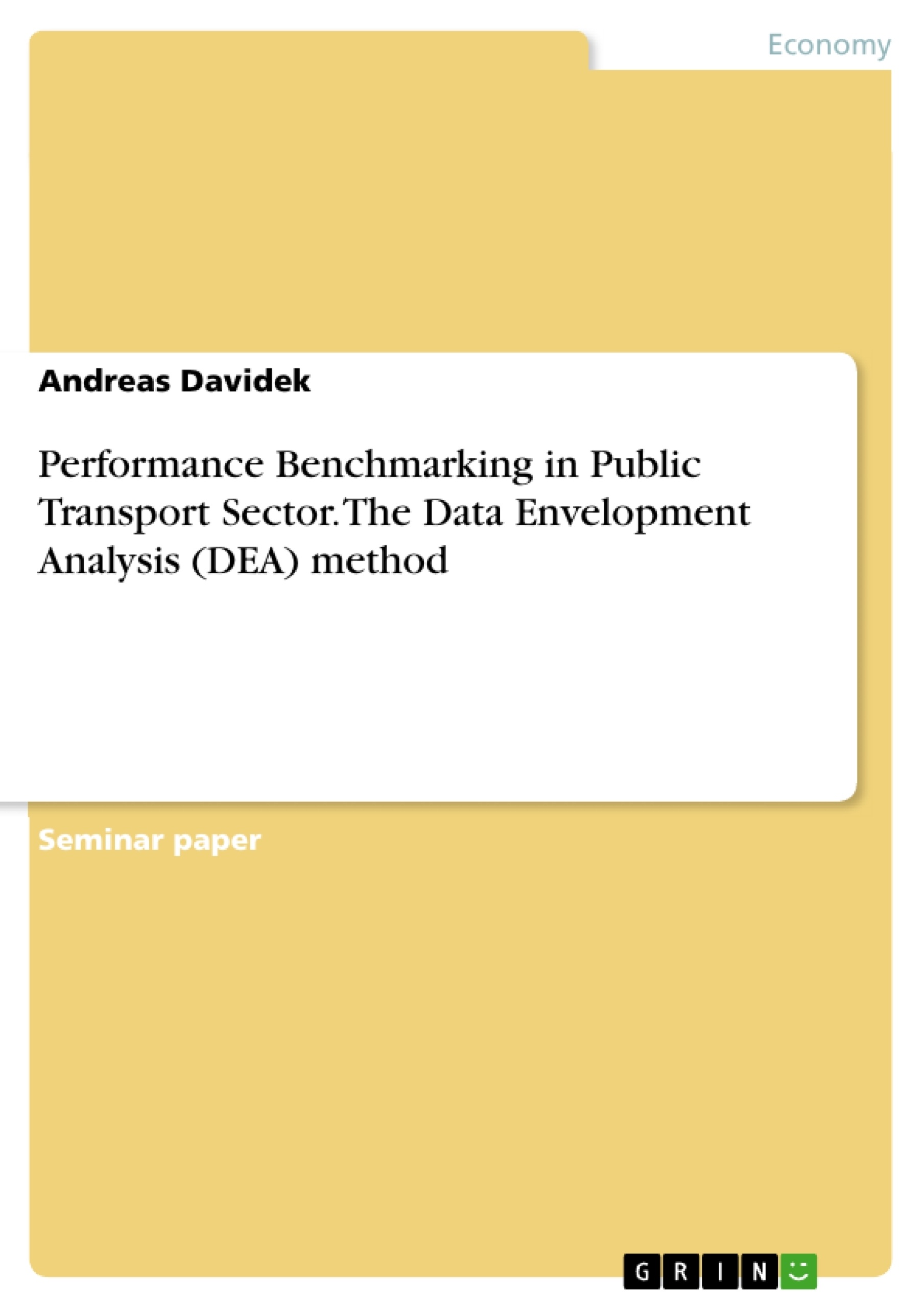The non-parametric approach is a common method for measuring the relative efficiency in the area of performance benchmarking and operations research. This approach does not require the a priori specification of a function. The estimation of the frontier of the production set only requires that the production set satisfies some properties, such as input and output factors. The Data Envelopment Analysis (DEA) method is a non-parametric approach that uses mathematical programming to esti-mate production frontiers and calculus efficiency scores.
The above technical explanation is necessary, as the present seminar paper deals with the application of the DEA approach in the field of the public transport. The objective of this paper is to review the state of the art in performance benchmarking in terms of different DEA-based framework and criteria to measure efficiency in the environments of public transport. To contribute to this goal, the ambition is to provide a systematic analysis of the performance criteria of the DEA models. Consequently, the main focus of this paper is to examine and classify the performance criteria.
Inhaltsverzeichnis (Table of Contents)
- Introduction
- Motivation
- Objectives and Outline
- Performance Benchmarking
- Overview
- Basic DEA Models
- Performance Benchmarking in Public Transport
- Structure of the Public Transportation Sector
- Different Views
- Classification of the Performance Criteria
- Input Variables
- Output Variables
- External Variables
- Features of DEA Models
- Conclusion and Outlook
Zielsetzung und Themenschwerpunkte (Objectives and Key Themes)
This seminar paper aims to review the current state of performance benchmarking in public transport, specifically focusing on the application of Data Envelopment Analysis (DEA) models. It explores different DEA-based frameworks and criteria to measure efficiency in this sector.
- Performance benchmarking in public transport
- Application of Data Envelopment Analysis (DEA) models
- Analysis of efficiency criteria in public transport
- Classification of input, output, and external variables for DEA models
- Exploration of DEA model features and limitations
Zusammenfassung der Kapitel (Chapter Summaries)
- Chapter 1: Introduction
- Chapter 2: Performance Benchmarking
- Chapter 3: Performance Benchmarking in Public Transport
This chapter introduces the topic of performance benchmarking in public transport, highlighting the motivation for this study. It discusses the growing pressure on public transport providers to improve efficiency and effectiveness, driven by factors such as government funding constraints, competition from private companies, and the need to reduce environmental impact. The chapter also outlines the objectives and structure of the seminar paper.
This chapter provides a theoretical overview of performance benchmarking and Data Envelopment Analysis (DEA). It explains the non-parametric approach used in DEA models and the basic models employed in efficiency measurement. This chapter lays the foundation for understanding the application of DEA in public transport.
This chapter delves into the specific application of DEA models in public transport. It analyzes the structure of the sector, different viewpoints on performance evaluation, and a comprehensive classification of performance criteria. The chapter examines input variables, output variables, and external factors that influence efficiency measurements. Additionally, it explores the features of DEA models in the context of public transport.
Schlüsselwörter (Keywords)
Key terms and concepts explored in this seminar paper include performance benchmarking, public transport, efficiency measurement, Data Envelopment Analysis (DEA), input variables, output variables, external variables, and DEA model features.
- Quote paper
- Andreas Davidek (Author), 2015, Performance Benchmarking in Public Transport Sector. The Data Envelopment Analysis (DEA) method, Munich, GRIN Verlag, https://www.grin.com/document/380812




